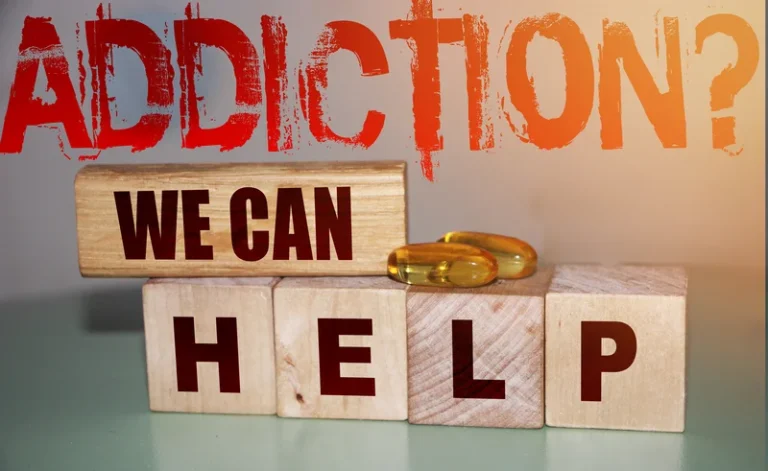
On the other hand, binge drinking is generally defined as four drinks for women and five drinks for men within a two-hour period. And even occasional binge drinking episodes can have profound effects on your liver’s health over time. If you’re keeping up with this average (or less), the damage from alcohol is most likely minimal. The Recovery Village Atlanta offers comprehensive addiction treatment for drug and alcohol addictions and co-occurring mental health conditions. Alcohol can worsen depression and be an emotional crutch, making it difficult to experience true happiness outside of drinking. Stopping alcohol can make you feel happier by allowing you to experience positive emotions without alcohol.

Legal Conditions and Terms
Get help right away if you or a loved one has an alcohol-related seizure. “When you quit drinking, your immune system gets a much-needed boost,” says Andrews. Your body can allocate its resources more effectively to fight off infections, making you less prone to common colds, flu and other ailments, she says. That heightened https://ecosoberhouse.com/ immunity can mean fewer sick days, increased energy levels and an overall improved sense of well-being, adds Andrews. Behavioral treatment programs are helpful for people who want to quit drinking. These programs involve working with a team of mental health professionals in a group and individual setting.
Examine alcohol health effects

Alcohol disrupts the important Rapid Eye Movement (REM) stage of sleep, which can leave you feeling tired the next day – no matter how long you stay in bed. Once you stop drinking, the alcohol leaves your system quite quickly. This means, depending on the physical state of your liver, that you gradually start to feel better. As the week progresses, you usually have more energy because your liver is not struggling to recover every single day.
- Giving up drinking may let you focus on your relationships, work, and health.
- “Anxiety is the most common thing people notice upon stopping,” says Dr. Sharone Abramowitz, MD, a psychiatrist and president of the California Society of Addiction Medicine.
- She has extensive experience working alongside clinicians and providers to create physical and mental well-being content that’s useful, informative and clinically effective.
- Medical supervision, behavioral health treatment, and mutual-aid groups can help you through alcohol withdrawal and stay stopped.
Can cutting out alcohol bring about health benefits?
Dr. Dasgupta said for social and moderate drinkers, participating in a month break won’t make much difference to their bodies. However, for people who exceed recommendations in the Dietary Guidelines for Americans, he said staying away from alcohol for a month can reap changes. Of all your body’s organs, your liver takes the biggest hit when it comes to alcohol. Even if your relationship with drinking consists of occasional social drinking with friends or occasionally over-indulging in wine and cocktails during the holiday season, alcohol can still leave its mark. When you constantly have some alcohol in your bloodstream, you will not think as clearly.
- In my eyes, it’s better to take an overall approach to your health and combine going sober with a good diet.
- In severe cases of withdrawal when symptoms are not treated, a person may experience generalized tonic-clonic seizures, delirium tremens, and even death.
- But treatment varies based on the severity of alcohol withdrawal and the likelihood that it could progress to severe or complicated withdrawal.
- Most people with mild to moderate alcohol withdrawal don’t need treatment in a hospital.
- This article discusses the causes, common symptoms, and different stages of alcohol withdrawal.
Symptoms of Alcohol Withdrawal: Timeline and Signs of Danger
Your gut microbiome is full of bacteria, both good and bad, that, when properly balanced, help regulate different processes in the body. It’s common to have a difficult time when making big changes, what happens when you stop drinking alcohol but good self-care practices can help you manage overwhelming feelings and take care of your mind and body. Research shows that most people believe that drinking can make them feel better.

“Cutting out and abstaining from alcohol can recover a substantial portion of liver function,” Wirtz says. “When we stop drinking, we can begin to repair some of the long-term effects of alcohol use.” While it may not be something you perceptibly notice, one huge health benefit from stopping alcohol will occur by your third week of not drinking. Using alcohol frequently or consistently increases your blood pressure, leading to an increased risk of heart disease and stroke. Light drinkers tend to be mostly spared from the effects on the liver, but for heavy drinkers, the liver becomes inflamed, which can be dangerous over time,” says Dr. Mosquera. That said, your liver has to work hard to process and filter alcohol, no matter the quantity.

You can manage stress and cope with life’s challenges in healthier ways, she says. And as a central nervous system depressant, alcohol can worsen mental health conditions such as depression, anxiety and panic disorder, says McMahon. No amount of alcohol consumption is established as safe for cancers and overall health, notes the World Health Organization. Like ultraviolet radiation, asbestos and tobacco, alcohol is classified by the International Agency for Research on Cancer as a Group 1 carcinogen—the highest-risk group. Start by talking to your doctor about how much alcohol you’ve been using and your plan to quit. It’s important that you work with your doctor when you’re ready to stop drinking rather than trying to do it alone.
Better Sleep
This is because alcohol can cause depression, anxiety, and other mental health problems. Drinking alcohol can contribute to a variety of cognitive issues, including poor memory, slow reaction time, impaired impulse control, and poor concentration. Over time, drinking can also damage nerve cells and contribute to a loss of brain volume. According to the Dietary Guidelines for Americans, alcohol should be consumed in moderation — up to one drink per day for women and up to two drinks per day for men. “You get the best benefit from alcohol when you drink in moderation.
- Excess alcohol consumption may cause weight gain, which means that cutting out alcohol could lead to weight loss for some people.
- According to the Dietary Guidelines for Americans, alcohol should be consumed in moderation — up to one drink per day for women and up to two drinks per day for men.
- One of the unexpected benefits of giving up alcohol is that you may find yourself more productive than before.
- McMahon says quitting alcohol might cause some sleep disturbances or insomnia initially, but sleep quality and quantity will improve with continued abstinence.



